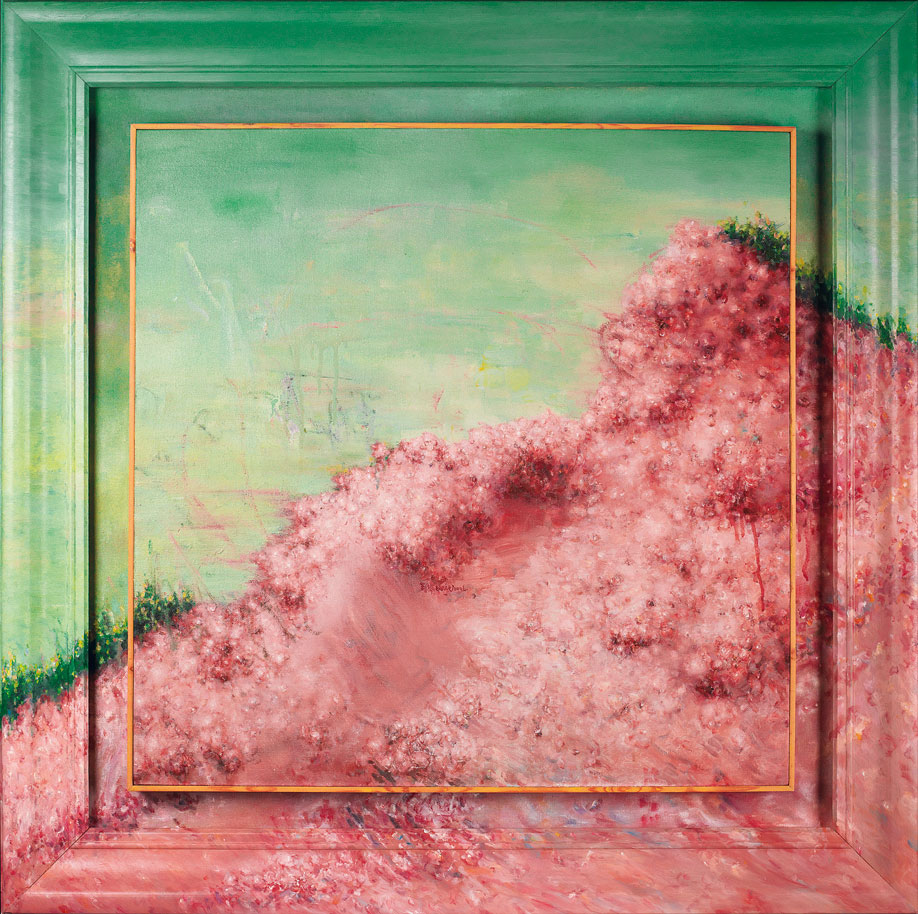

Estimate
TWD 11,000,000-22,000,000
HKD 2,857,000-5,714,000
USD 370,400-740,700
Sold Price
TWD 12,000,000
HKD 3,108,808
USD 401,204
Signature
+ OVERVIEW
Historians have the habit of concluding, comparing and analyzing while critics are fond of classification and determination of the nature. In the past 30 restless years of Chinese contemporary art, active artists and artworks are categorized into different styles and doctrines. Liu Wei is recognized as the most talented representative artist of Cynical Realism. However, as to the artists themselves, they may not care about the categories. For Liu, the nature of his artistic creation cannot be simply defined by Cynical Realism or the saying of "transformingdecay into wonder". Attitude of criticism, significant social phenomenon, attention to the society and human spiritual world - he did not let any of these become obstacles to his creation, even more, his artworks are growing and transforming along with the artist himself.
The old boy, grown up in the military community in Beijing, expresses his internal feelings with painting brushes. His artworks breathe out a unique sense of wildness. He said "I respect my internal feelings; I interpret the view in my eyes through a unique approach. The audience may recognize my paintings at a glance. A painting can only connect with the audience when the painter created it with emotions; I think that is beautiful."
As the first artist who twice participated Venice Biennale, Liu's artworks have gained extensive awareness among western collectors. His livelihood and emotions are presented through his art works directly. His works in 1980s were full of dreams and innocentimaginations, significantly affected by western super-realism artists. Distorted characters and landscape were developed in his artworks in 1990s; although realistic artworks related to Tibetan themes were popular during those years, Liu insisted on super-realism style, utilizing distorted characters and exaggerated color to express his feelings.
In 1991, Liu had his very first significant exhibition, with his classmate Fang Lijun; during which, the concept of Cynical Realism was brought up by Li Xianting for the first time. Around that period, symbolic "father" and leader image were presented with caricature landscape in works such as "Revolutionary Family" and the "Swimming Series". Glassy-eyed characters with askew lips are displayed repeatedly, which showcases intense visual impact, revolt the imprisonment of paternity and ideology silently. Liu's masterpiece of all times can be foundin the collection of Howard and Patricia Farber, Guy and Myriam Ullens. As avant-garde art became popular gradually, Liu chose a different direction, giving up the typical visual symbol to explore a new style. In 1995, political symbol disappeared after the series of "You Love Meat"; a new series, named "Born in 1989", were successively created, taking dogs and children as his major theme, formed his new style of "transforming the decay into wonder".
Flower, landscape and character all melt in the exquisite, flowing and unintended brush strokes. His creation is still free wheeling and multivariant, his creative approaches are always innovative even in identical theme, as reiteration is unbearable: "I will never do the same thing after they're done."
In the summer of 2006, Liu moved into the new studio in Song Zhuang art district. During an interview, he mentioned that he needed to adapt the new environment in order to create new artworks. The same year, his new art pieces were exhibited in Shanghai Hongqiao Gallery. This time, he cast his attempt into constantly refurbished material and media. Exquisite brush strokes and flowing oil paint break the leash of canvas, style and frame. The flowing landscape spills out of the frame, melting the frame and scene together.
The piece "Landscape" retains the classical "transforming the decay into wonder" style of the artist. Red hillside occupies half of the scene, while the sky is filled in green. They spread out of the painting, yet dammed by the frame, which breaks the traditional habit of appreciation. Academic knowledge and influence of Chinese traditional painting are both permeated in the seemingly random yet exquisite brush strokes.
Modern & Contemporary Asian Art
Ravenel Spring Auction 2012 Taipei
Sunday, June 3, 2012, 2:30pm
